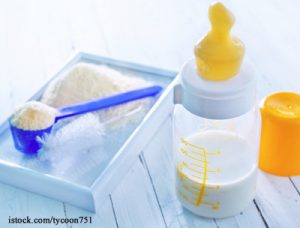The Maine Board of Environmental Protection has voted to back a limited BPA ban in infant formula packaging and baby food containers in a preliminary vote this week. The Maine Department of Environment Protection (DEP) recommended at the beginning of January that BPA be phased out of infant formula packaging, but not baby food and toddler food containers.
 With one more vote, the ban will become law in that state. The board decided it was too difficult to set a limit on toddler food containers, so those packages will not be included in the ban. Last year, the DEP published a report considering possible replacements for BPA.
With one more vote, the ban will become law in that state. The board decided it was too difficult to set a limit on toddler food containers, so those packages will not be included in the ban. Last year, the DEP published a report considering possible replacements for BPA.
BPA, or Bisphenol-A, is a very controversial chemical that is added to plastics to make them shatterproof. It’s also used as a liner for cans, since acidic foods have to be shielded from metal. Different studies have linked the chemical to problems with early childhood development, cancer, adverse neurological effects, heart disease, and problems with memory and learning. Last April, the FDA ruled against a BPA ban and announced they will continue to study the issue.
The chemical is already banned from baby bottles and sippy cups. This new ban will remove the chemical from other types of food containers made for infants and babies.
Alternatives for BPA use include polypropylene, polyethylene, and polystyrene. The report states that polyethylene is most likely the best substitute. “Overall, it is believed that polyethylene, in a number of different formulations, represents the preferred choice in alternative packaging to replace containers that employ a BPA-based lining. Polyethylene is unreactive, stable, and inexpensive.” There are no health implications associated with polyethylene. In addition, the compound can be recycled.




